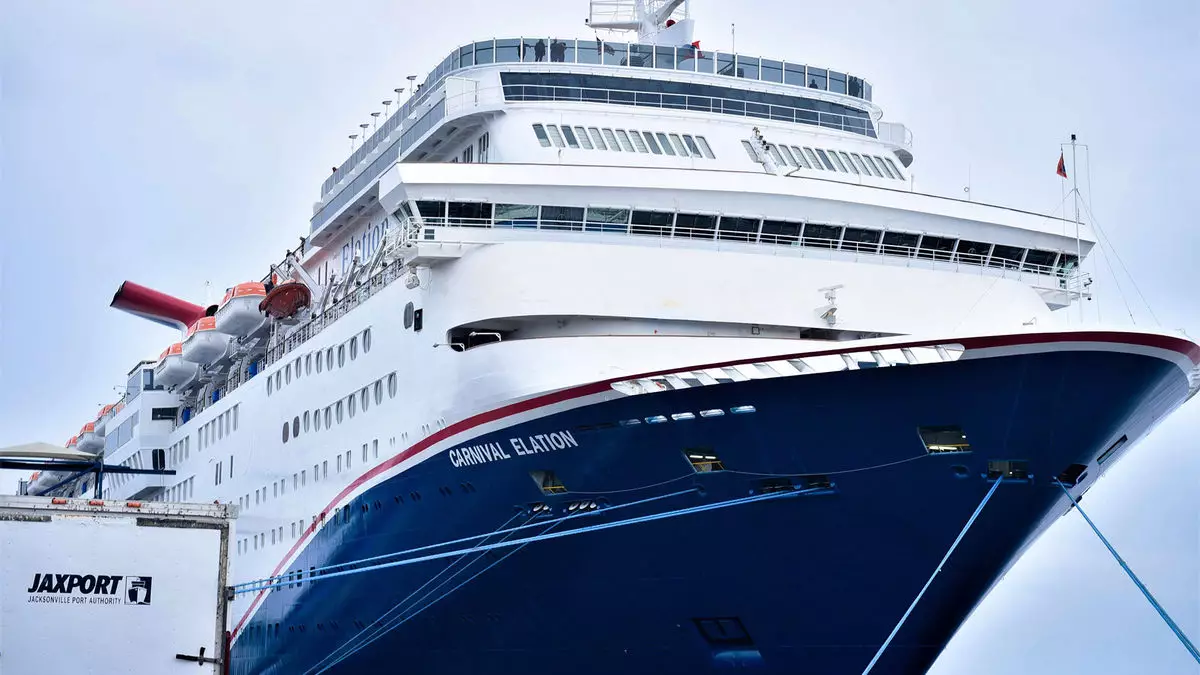As Hurricane Helene made headlines this week, its implications rippled through the Gulf of Mexico, casting a shadow on both land and maritime travel. The hurricane, which developed into a full-blown storm on Wednesday, has forced adjustments in various transportation schedules, particularly affecting cruise ship itineraries for vessels journeying along Florida’s coastline and beyond. This article delves into the disruption caused by Hurricane Helene and examines its broader implications for travelers and the cruise industry.
Hurricane Helene, as noted, began its course northward through the Gulf, reaching a conventional hurricane status with mounting winds and increasing potential for landfall. Predictions indicated the storm was set to impact Florida’s Panhandle by Thursday night, possibly escalating to a Category Four hurricane as it approached land. Weather-related phenomena such as heavy rainfall, strong winds, and high waves were already battering popular tourist spots like Cozumel and Cancun earlier in the week, contributing to a sense of urgency among vacationers and those responsible for their safety.
The direct consequence of Helene’s advance was the rapid alteration of cruise itineraries. Carnival Cruise Line was at the forefront of these adjustments, announcing the temporary closure of key ports in Tampa and Jacksonville. Notably, the Carnival Paradise and Carnival Elation, which were scheduled for harboring upon their return, were instructed to remain at sea until it was deemed safe to dock. This decision, while prioritizing passenger safety, left many travelers uncertain about their plans; however, the company actively communicated avenues for passengers to stay informed through text alert systems.
Other cruise lines followed suit, with Royal Caribbean International making significant shifts to their routes as a precautionary measure. Ships previously set to visit Cozumel and Costa Maya redirected their courses toward safer territories, like Nassau, Bahamas. This broader change reflected not just an operational response but an industry-wide acknowledgment of the dangers posed by the impending storm.
The ramifications of Hurricane Helene reflect deeper challenges for the cruise industry and tourism in the Caribbean. While cruise lines have operational protocols to modify itineraries swiftly, prolonged weather threats can deter future travelers from booking voyages. As nature imposes uncertainty, the perception of safety becomes paramount for potential tourists. The volatility of hurricane season, with storms like Helene making headlines, raises questions about long-term impacts on vacationer confidence, especially in the wake of multiple hurricanes impacting the region in recent years.
Moreover, the immediate local economies that rely heavily on tourism bear the brunt of such storms through not only damage to infrastructure but also a significant decrease in visitor footfall. Resorts and local businesses find themselves scrambling for resources as weather conditions disrupt their normal operations. While recovery efforts are typically swift post-storm, the initial economic hit can result in lasting consequences.
As travel continues to evolve and adapt to environmental factors, the cruise industry may need to reconsider its operational strategies during hurricane season. Enhanced predictive technologies, early warning systems, and potentially a reconfiguration of popular travel routes could serve as preventative measures. Additionally, fostering stronger collaborations with national meteorological services could enable cruise companies to make more informed decisions and communicate effectively with travelers.
Ultimately, the recent events triggered by Hurricane Helene are a stark reminder of nature’s unpredictability. As travelers look towards the Caribbean and Gulf regions for their vacation plans, it is essential for the industry to prioritize safety, adaptability, and clear communication to restore confidence among travelers during hurricane season. A proactive and educated approach could ensure that vacationers continue to flock to these stunning destinations while recognizing the inherent risks during storm-prone months.
As Hurricane Helene continues to make its presence known, the cruise industry faces a unique set of challenges. The changes in operations, combined with the broader economic and safety-related ramifications, underscore the importance of preparedness and effective communication within the tourism sector. The effects of storms not only impact immediate travel plans but also the long-term health of the tourism industry in hurricane-affected areas. As recovery and adaptation strategies unfold, the resilience of both the cruise lines and the local economies will be crucial in navigating the unpredictable waters of nature’s storms.


Leave a Reply